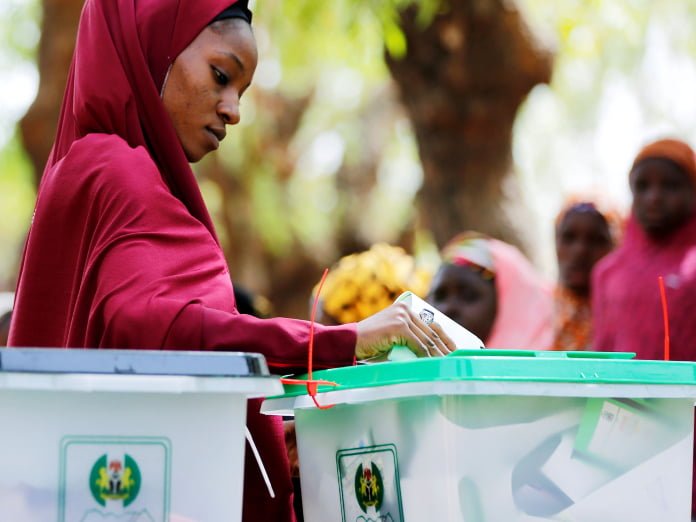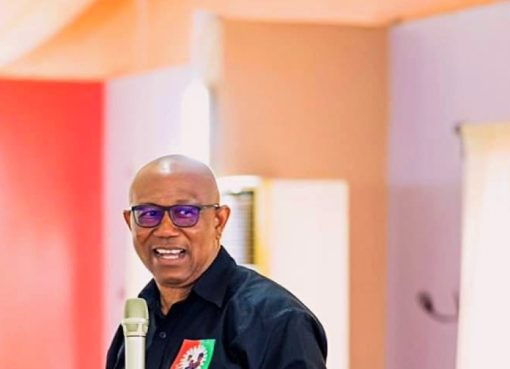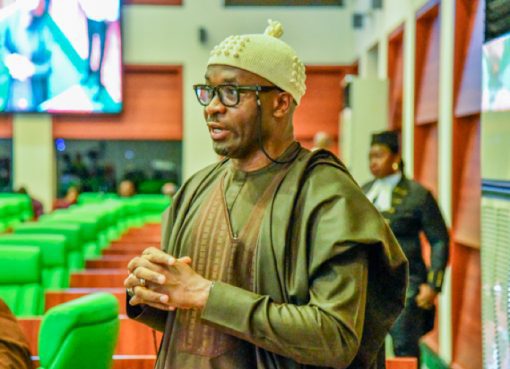by Uchechukwu Okoroafor, Abuja
In a country where democracy is frequently betrayed at the ballot box, the recent attempt by Nigeria’s House of Representatives to make voting compulsory is not only tone-deaf, but it dangerously misdiagnoses the root cause of voter apathy. The bill, which has passed its second reading, seeks to amend the Electoral Act 2022 to mandate all Nigerians of voting age to participate in national and state elections or face up to six months’ imprisonment or a fine of ₦100,000. Proponents argue this will deepen democracy, foster civic responsibility, and increase voter turnout. But this prescription offers cosmetic treatment to a systemic disease—election rigging and institutional failure are the true drivers of public disengagement, not civic laziness.

It is baffling that the Nigerian legislature, in its diagnosis of declining voter turnout, would ignore the elephant in the room—a widespread and justified lack of faith in the integrity of elections. The 2023 general election was emblematic of this problem. Despite assurances from the Independent National Electoral Commission (INEC) that technology would ensure transparency and real-time results transmission, the process was marred by delays, irregularities, and outright manipulation. Many citizens watched their votes disappear into a black hole of broken promises. If voters believe their participation is meaningless, no amount of legal coercion will change their minds.
Contrary to what lawmakers who support the bill suggest, voter apathy in Nigeria is not born from irresponsibility or a lack of patriotism. It is often a form of passive resistance, a silent protest against a system that routinely disenfranchises the very people it claims to empower. Mandating the same citizens to return to the polls under threat of imprisonment only compounds the sense of alienation. It communicates that their bodies are useful for democratic theatre, but their voices and choices don’t truly count.
The bill’s backers frequently reference countries like Australia and Belgium, where voting is compulsory. But what they fail to mention is that these countries also have relatively credible, independent electoral bodies and long histories of democratic stability. They did not start with coercion; they built civic trust first. In Nigeria, that foundation is shaky at best. Forcing people to participate in elections run by institutions they don’t trust is not democratic deepening—it is democratic deception.
Moreover, how will such a law be enforced in a nation plagued by infrastructural collapse and inconsistent voter access? Citizens in rural areas, those displaced by conflict, or those living abroad often struggle to participate due to logistical or bureaucratic hurdles. Is it just to punish them for the state’s failure to ensure accessibility? As Hon. Awaji-Inombek Abiante rightly pointed out, it is impractical and unjust to criminalize non-participation without first fixing these systemic gaps.
What Nigeria needs is not a law that criminalizes disengagement but a political will that criminalizes electoral theft. Election rigging, vote buying, and the manipulation of results are the cancers killing our democracy. If lawmakers are truly serious about combating voter apathy, they should start by Enforcing electoral reforms that guarantee the independence and accountability of INEC and implementing strict penalties for election rigging—including vote buying, falsification of results, and the use of violence to intimidate voters; Ensuring that electronic transmission of results is not only mandated but also enforced without manipulation or excuse; Expanding access to polling units and enabling absentee voting or diaspora voting to ensure broader participation.
Only when people believe that their votes will be counted and that those votes can lead to genuine change will they return to the polls—not because of fear, but because of hope.
Proponents of this bill claim that it will restore public confidence in the system. But this logic is reversed. Civic confidence is not born from compulsion; it is born from trust. A government that respects the will of its people doesn’t need to force them to vote. The enthusiasm to participate grows organically when the electorate sees real consequences tied to their ballots—when elected officials reflect their wishes and not the manipulations of power brokers.
The suggestion that this bill will eliminate vote buying is equally naive. In a system where politicians weaponize poverty and desperation to secure votes, adding more voters under duress will only expand the market for inducement. The problem isn’t the number of voters—it’s the quality of the election and the honesty of the process.
Before Nigeria considers making voting compulsory, it must make voting meaningful. The act of voting should be a celebration of civic power, not a coerced ritual under legal threat. Lawmakers must ask themselves, what message does this bill send to a citizen who stood in the sun for hours in the last election, only to find that their vote was discarded or ignored? Is the solution really to threaten them with a jail term the next time they decide to sit out?
If we truly want to revive democracy in Nigeria, the path lies not through punishment but through reform. Rigged elections have robbed citizens of hope. Restore that hope, and they will return to the ballot box—not because they are forced to, but because they believe it matters.



